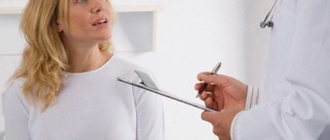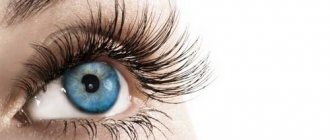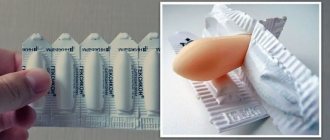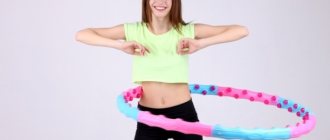Many girls periodically visit beauty salons to transform their image. One of these visits may occur on the day your period begins. Then the question arises: will menstruation affect the results of the procedures? This is especially true for eyelash extensions and manicures, which will be discussed in this article.
Should you get eyelash extensions during your period?
It would seem, what does critical days have to do with it? However, any interference in the body’s familiar environment may lead to certain changes.
During menstruation, there is a hormonal surge that affects the functioning of organs, so interventions will be more noticeable at this time.
But it is worth considering the individuality of each organism: what may affect one person will probably not affect another. Therefore, it is impossible to give a categorical answer to the question about eyelash extensions on critical days.
Consequences of the procedure
Basically, all adverse reactions are purely individual and can affect only a few. But there is a short list of possible consequences after the procedure during menstruation. Every girl should get to know him:
- risk of increased fragility of eyelashes , which may subsequently begin to fall out;
- allergic reaction to glue and artificial material;
- short period of eyelash attachment (about a week).
As a result, in order to return eyelashes to their previous state, a woman needs to spend a considerable amount of time and effort on their restoration.
Is it possible to get nail extensions during menstruation?
A visit to a nail salon almost always involves a nail technician using reusable tools and removing cuticles. Obviously, such devices must be thoroughly disinfected after each client, and using a thermal method. Therefore, regardless of whether a woman has her period during a visit to the salon or not, first of all, she must be sure of the sterility of the instruments and the room itself. If her menstruation does begin, she must be doubly vigilant. This is due to the fact that during this period the immune system is weakened and more vulnerable to inflammation and infections. Any damage to the cuticle can have serious consequences.
Arguments against nail extensions
As mentioned earlier, menstruation is accompanied by hormonal changes that cannot go unnoticed. In turn, against their background, there are reasons not to carry out the nail extension procedure. This is due to a number of reasons:
- During menstruation, girls are forced to take painkillers, which can contribute to poor adhesion of the consumable to the surface of the nail plate .
- Increased sweating of the hands , which sometimes accompanies women during menstrual periods, reduces the period of use of extended nails .
- There is a possibility of air cushions appearing due to a weakened immune system .
In addition to the above points, one cannot help but note the abundance of odors emanating from various materials, which negatively affect a woman’s well-being.
Other reasons why nails don't hold up
Detachment of the nail after artificial extension is called lifting. For some women, new forms can last up to a month, while for others they disappear within a day or two. The reasons may be different:
- It should be borne in mind that taking certain medications, in particular antibiotics and some analgesics, provokes weak bonding of the material and its nail plate. Therefore, during treatment, as well as during critical days, it is better not to do this procedure. This may explain why nail extensions should not be done during menstruation, although this does not always happen.
- During pregnancy, significant hormonal changes occur in a woman’s body, which also affects her nails. A larger protective lipid layer is formed on them, which requires a slightly different approach to modeling and the extension process itself.
- If correction is not carried out in a timely manner, the apex shifts - the point of stress or potential fracture. In this case, even a slight impact on the nail will lead to its detachment.
- Also, nails do not hold up in women who are characterized by excessive sweating of the palms of the hands - hyperhidrosis. Often it can accompany premenstrual syndrome and critical days. Therefore, it is not advisable to carry out the procedure at this time.
- If for some reason the master files your nails, removing too much of the top layer.
- If you use low-quality cheap materials, you should also not expect durability from them.
- Also, when planning artificial nails, you should take into account the woman’s lifestyle. For example, when playing sports or when you need to constantly type, you should give preference to certain shapes and sizes.
Shellac during menstruation
Applying shellac during menstruation entails only one point: an increased risk of inflammation of the wound after cuticle treatment . The rest depends only on the qualifications of the master or the condition of the woman, especially if she does the manicure herself. In other words, it is not recommended to apply shellac if you have severe pain in the lower abdomen and are in an unstable mood, since an unsuccessful result is possible. No other effects of critical days on this type of coverage have been proven. However, if shellac does not hold up well, then perhaps you should pay attention to the professionalism of the master.
What not to do during menstruation, and what you can do and why
The female body has certain characteristics that significantly affect the behavior and physical condition of all women without exception. And that’s why the psycho-emotional state of beautiful representatives of the fairer sex is varied and not always stable. This is especially true at the time of each month when menstruation begins.
During menstruation, a woman’s body is especially vulnerable
During this period, many changes occur in a woman’s body, and many are interested in the question of what can and cannot be done during menstruation. Is it worth signing up for laser hair removal or sugaring, if not, then why, should I have a colonoscopy or colposcopy, should I inject Botox and do a series of physical exercises?
Energy imbalance
During menstruation, a kind of cleansing of the body occurs. Not only the unnecessary egg that was not fertilized goes away, but also all the negative energy that the woman has accumulated over the month. This is why many feel broken, empty and powerless.
There are many old beliefs about what women should not do during their period, for example:
- to bake bread;
- ferment cabbage;
- plant a vegetable garden;
- weave;
- swim in ponds;
- and even approach a house that is being built.
Swimming in water bodies is prohibited during menstruation
What are these rules connected to? Is it really true that during this period women should literally be bypassed and they themselves should not take on anything? This is most likely explained by the fact that during this period a woman’s energy is especially powerful and, at the same time, most often negative. After all, the body gets rid of everything unnecessary, everything bad, and is renewed. And all of the listed actions are capable of absorbing this energy into themselves, and our ancestors did not want this.
But if many of these rules are not relevant today, then there are some that modern women should know. Namely, what is quite possible to do during menstruation, and what is better to refuse and why it is better to do it.
Love spells and magic
During menstruation, various love spells are performed, especially love spells. Also, menstrual blood itself is often used for love spells, which is believed to carry a huge energy load.
In ancient times, a love spell for menstruation was popular
But any magic is a risky endeavor. A love spell can result in troubles or illnesses for you.
Therefore, if you do not understand love spells and magic, then you should not practice them. Although such practices are no longer as popular as before, there are still people who want to resort to them.
That's why you should think several times before turning to the help of love spells.
Epilation and sugaring
Epilation is a necessary procedure for every woman, and not every woman will deny herself it, even despite the presence of menstruation. Often the most compelling reason not to epilate is the high sensitivity these days.
In principle, a woman herself can choose the time for hair removal; this procedure has no contraindications.
But you should be prepared for the fact that the pain of epilation will be slightly increased; the skin may become more susceptible to irritation.
But there are methods of hair removal that can cause the least discomfort, such as shaving or sugaring.
Hair removal during menstruation is allowed
Sugaring is hair removal with natural sugar mass. The procedure is quite simple, gentle, but also effective. At the same time, during its implementation, gentle peeling of the skin also occurs. That's why sugaring can be done during menstruation.
If waxing is carried out against hair growth, then sugaring is performed according to hair growth. And therefore, the painful sensations during sugaring are the least vivid. And if you don’t want to wait until your period ends to do hair removal, then it’s better to do sugaring.
Physical exercise
There is an opinion that physical exercise should not be done; it is better to postpone it until the end of your period, or at least refrain from heavy exercise for the first couple of days. But light exercise can and should be done even in the first days of menstruation.
It is likely that it will be more difficult for you to stand in a plank, perform exercises with heavy weights, or do stretching these days, but there are absolutely no contraindications to this. What you really need to do is listen to your own feelings and trust them. If you don't have the strength to hold a plank, do another, easier exercise.
Light physical activity during menstruation is permissible
There are even a number of exercises that will not only do no harm, but can even reduce pain during menstruation. Why not do them?
Douching
Douching is not a hygiene procedure and should not be used for this purpose, especially during menstruation. Although women previously practiced this. In fact, douching is not necessary for a healthy woman.
Douching may be prescribed by the attending physician for the purpose of treatment. But it cannot be carried out during menstruation. Through douching, the vaginal microflora can be disrupted or an infection can be introduced into the uterine cavity. Therefore, before douching, consult your doctor and check the prescription. After all, douching during this period will not bring any benefit, since the drug will come out with all the secretions.
Carrying out cosmetic surgeries
Surgery, although cosmetic, is still a risky activity. Which of them can and cannot be done during menstruation? For example, cosmetologists still do not recommend doing such a well-known procedure as mesotherapy.
Mesotherapy
Mesotherapy involves the introduction of a special cocktail of nutrients and other substances under the skin. Cosmetologists advise to refrain from this operation during menstruation. Mesotherapy may not produce results and may be painful.
Botox
Botox injections are now offered by many beauty salons. With their help, wrinkles will be smoothed out and new ones will not appear. But is it worth injecting Botox during your period?
Botox injections are best done after your period ends.
Cosmetologists are against the use of Botox at this time, because, in addition to the painfulness of the procedure, there is a possibility of any side effects at the sites of Botox injections, such as bruises or hematomas. Therefore, reschedule the Botox injection procedure for another period. But at the same time, there are no medical contraindications for Botox during menstrual periods.
Peeling
The cosmetic procedure, peeling, has many varieties. And if you want to do facial peeling and get good results, then refrain from doing it during your menstrual period.
It is better to avoid cleansing your face during your period.
Although you can carry out light peeling these days. But remember that the condition of the skin deteriorates somewhat during menstruation, and therefore do not rush to correct it with peeling, wait a few days.
Shellac
Shellac is a gel polish that has a durable and durable coating. Shellac can be applied in a salon, or you can do it yourself. And since a wide variety of signs are associated with menstrual periods for women, a kind of myth has appeared that shellac should not be done during this period. The myth has absolutely no basis, so feel free to apply shellac during your period.
A beautiful gel polish applied during critical days will brighten up this period.
Carrying out diagnostic operations
Many ladies are interested in questions related to a wide variety of medical operations. For example, like this:
- colposcopy;
- hysteroscopy;
- colonoscopy;
- laparoscopy;
- X-ray;
- fluorography.
Can I do a number of these procedures or should I wait until my period ends?
Colonoscopy
Colonoscopy involves inserting a special device through the anus for diagnostic purposes. Before this operation, a cleansing enema is prescribed. This enema is mandatory, it helps to simplify the examination of the intestines. You can do a colonoscopy during your period, but it is still better to choose a time five days before or after.
Some procedures are not performed during menstrual periods for aesthetic reasons.
X-ray and fluorography
But you can safely undergo fluorography or x-rays and not worry about your condition and the results.
Both x-rays and fluorography do not have any significant contraindications for use during menstruation. But you should still pay attention to the general condition.
After all, during an x-ray, the body receives a small dose of radiation, and this can affect well-being, which is already unstable during menstruation.
Important: You should not have an x-ray if your period is late. Because this may be associated with pregnancy, and x-rays are quite undesirable for the fetus. In addition to causing harm to him, x-rays can even cause a miscarriage. Therefore, you should not take an x-ray if you suspect pregnancy.
Sclerotherapy
Many people are also interested in the following question: is it possible to perform sclerotherapy during menstruation?
Yes, sclerotherapy can also be performed during menstruation; no doctor or science has any contraindications. The only thing that can cause you discomfort during sclerotherapy surgery is increased sensitivity and a low pain threshold.
Hysteroscopy
Hysteroscopy is a diagnostic or therapeutic operation in the uterine cavity. It is better to take it not during menstruation, as visibility is impaired and the results may be erroneous. Hysteroscopy is prescribed by a gynecologist.
Colposcopy
Colposcopy is a diagnostic operation that involves examining the cervix. It is not performed during menstruation, and the gynecologist prescribes a specific day for this. This way colposcopy will be more effective, and the information obtained will be objective. Therefore, colposcopy during menstruation is excluded.
Laparoscopy
Laparoscopy, surgery in the uterine cavity, cannot be performed during menstruation. It can only be carried out in an emergency during this period.
Source: https://LadyKrasotka.com/world/interesting/chto-nelzya-delat-vo-vremya-mesyachnyx.html
Experts' opinions
Regarding eyelash extensions on critical days: cosmetologists say that if a girl does not have allergies, is absolutely healthy, and her periods do not undermine her well-being, then she is in no danger. The result depends only on the skill of the master and the woman’s compliance with the rules for eyelash care.
But before starting on the nails, a good specialist will first ask how the client’s menstrual cycle is going and whether she is taking any medications. The reasons are the same: the risk of contracting inflammation and the likelihood of premature detachment of the material . But even here the choice remains with the girl.
Is it possible to get artificial nails while pregnant?
I always want to be beautiful! Gone are the days when expectant mothers walked around with half their heads grown out and wearing the same shapeless overalls. Now there are many stores where very beautiful fashionable clothes and special cosmetics are presented for pregnant women. There are also harmless hair dyes that do not contain chemicals such as ammonia. Simply put, there are more than enough opportunities to be the most beautiful and attractive! But what about those who are accustomed to nail extensions and can no longer imagine themselves without long, well-groomed nails? Modern artificial nails are not only beautiful, but also practical, because after visiting a master, we can forget about manicure and varnish for three weeks; artificial nails will retain their beauty and well-groomed appearance until the next correction.
But every pregnant woman should think about whether nail extensions will harm her unborn child! A few months ago, when my best friend found herself in an “interesting situation,” I was also very interested in this question. But, surprisingly, her attending physician could not say anything intelligible about this. Even on the Internet there was no necessary information! That’s when I thought about it very seriously and decided to find the answer to this question!
After reading mountains of professional literature, I still found out that research had been conducted on this matter. Nail service specialists took part in the research, i.e. women who not only get their nails done once a month, but are also exposed to chemical fumes every day. Based on the conducted research, conclusions were drawn about the influence of the most common chemicals used in artificial nail extensions.
The main component of modern materials for nail modeling is methacrylate. It is worth noting that there are two types of methacrylates - methyl methacrylate and ethyl methacrylate. Methyl methacrylate does have a harmful effect on the fetus. Studies in mice and rats have shown that methyl methacrylate can cause birth defects. However, the concentration level of methyl methacrylate causes phenomena where it is almost a thousand times higher than in nail extension materials . Materials containing methyl methacrylate have long been banned in Europe and America; this substance can only be found in materials made in China and Korea. In developed countries, manufacturers of professional materials have long been using another, more advanced substance - ethyl methacrylate . Ethyl methacrylate (EMA) does not have the same toxicity as methyl methacrylate (MMA), which means that if safety precautions and precautions are followed, the extension procedure will not cause you any harm .
Many pregnant clients believe that acrylic is much more harmful to them than gel, because it has a very strong chemical smell and harmful fumes. Yes, indeed, acrylic has fumes. But the gel evaporates in the same way, you just don’t smell the fumes. There is no smell, but the effect is the same. Think about it! And if we’re talking about the difference in materials, then it’s better to choose “smelly”, but high-quality acrylic made in Europe or America, rather than odorless Chinese gel.
Surely you have heard about such a substance as formaldehyde . It is also poisonous and toxic in large quantities. But in the production of nail polishes and extension materials, a minimal amount of this substance is used. In addition, studies have shown that although formaldehyde in large doses is toxic, it is harmful only to the mother’s body; this substance does not affect the course of pregnancy in any way .
But toluene, contained in almost all medicinal coatings and nail polishes, can have a negative effect on the fetus . Very long-term inhalation of toluene vapor can lead to disturbances in fetal development, similar to those that occur with frequent alcohol consumption during pregnancy. However, the toluene content in varnish coatings is so minimal that, as a result of ongoing research, not a single case of the birth of infants with congenital malformations has been recorded.
What follows from this article? Nail extensions are not contraindicated for pregnant women . However, it is important to comply with some conditions.
- Firstly, the procedure for modeling artificial nails should take place in a ventilated room with good exhaust.
- Secondly, the master must use only high-quality materials of the latest generation.
- And thirdly, after applying extensions, wash your hands thoroughly with soap and rinse your nose with still mineral water - this way you will get rid of the dust that occurs after filing your nails and in rare cases can cause an allergic reaction.
On my own behalf, I can wish future mothers a happy and easy pregnancy, always remain as beautiful.









